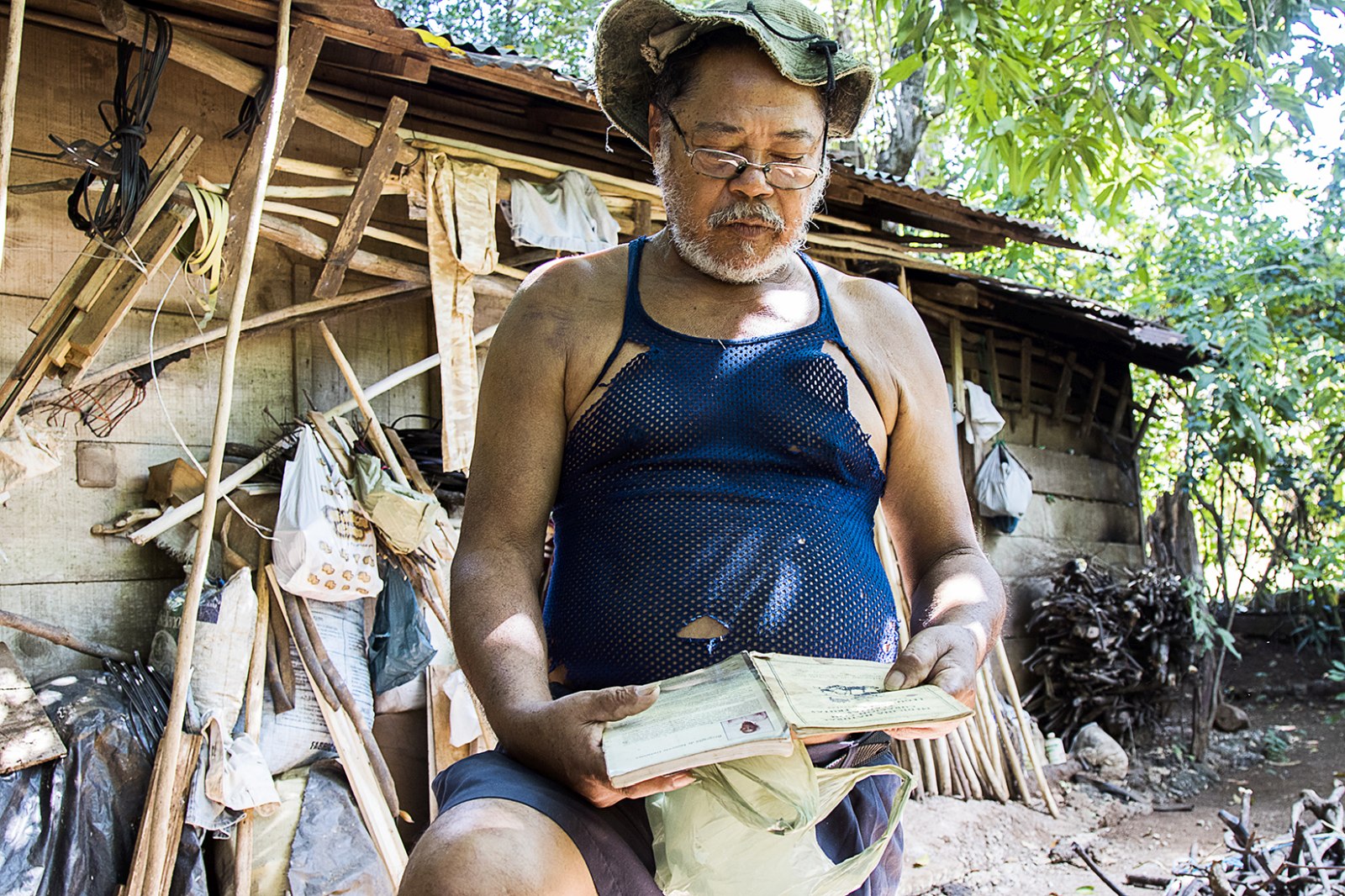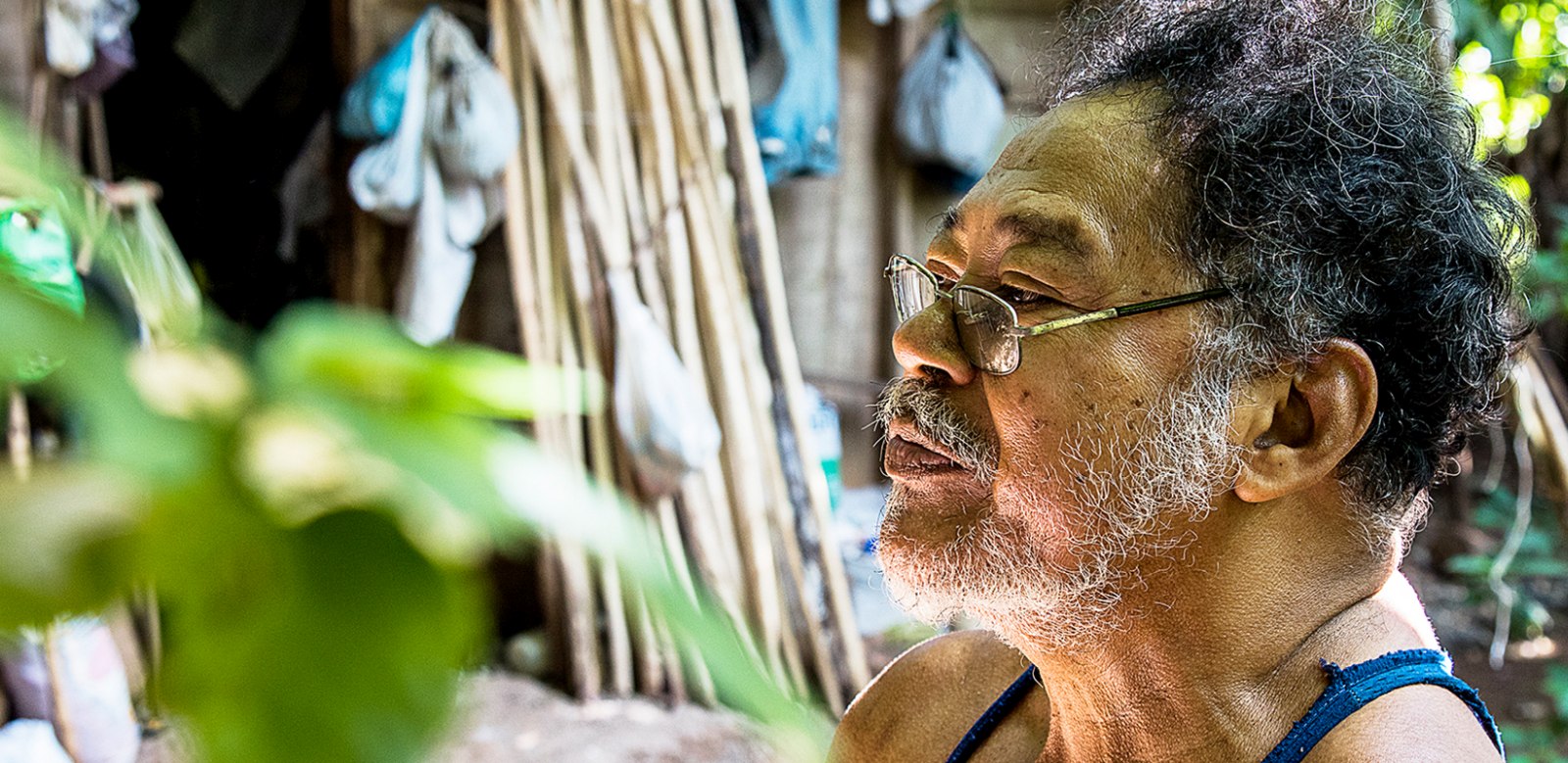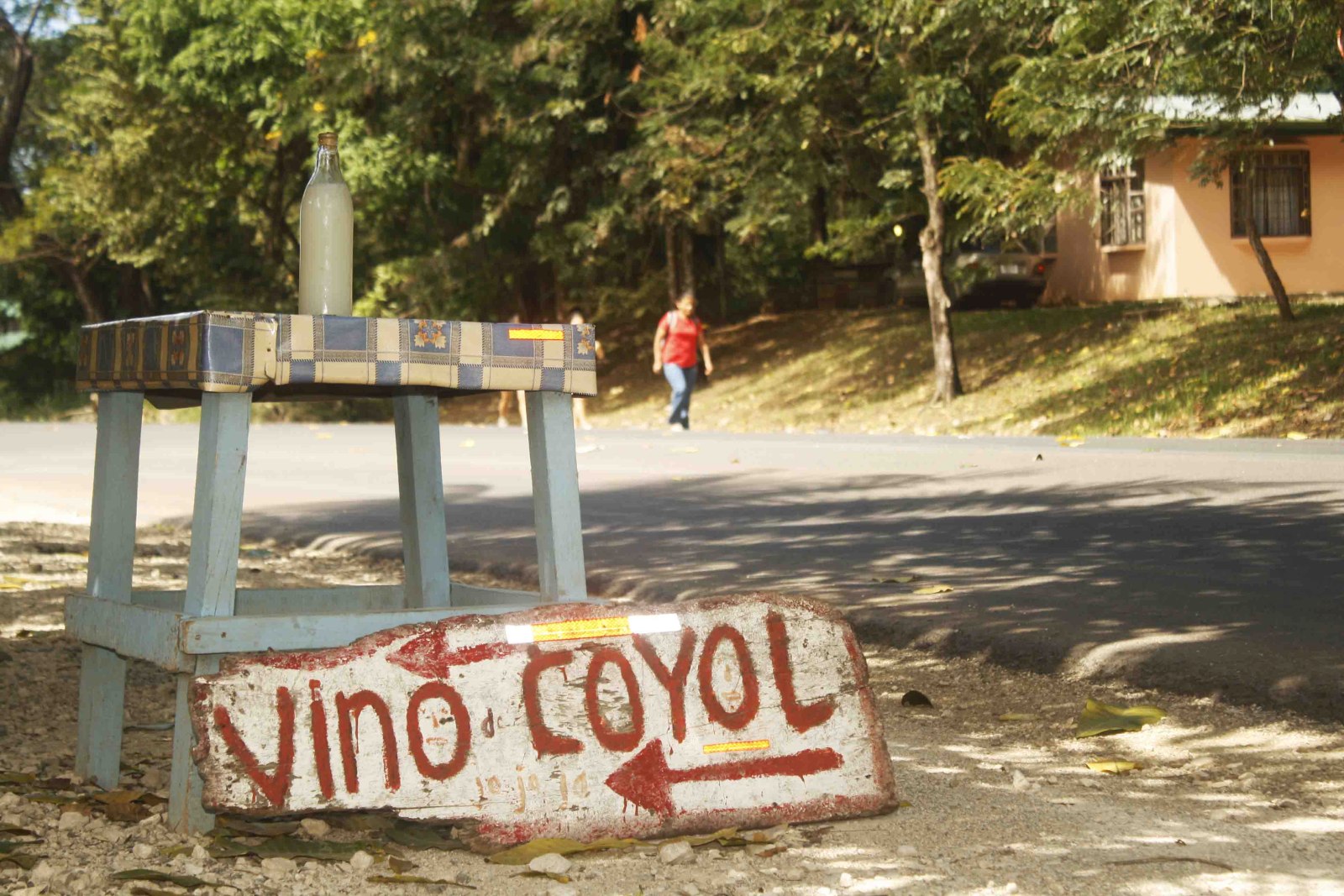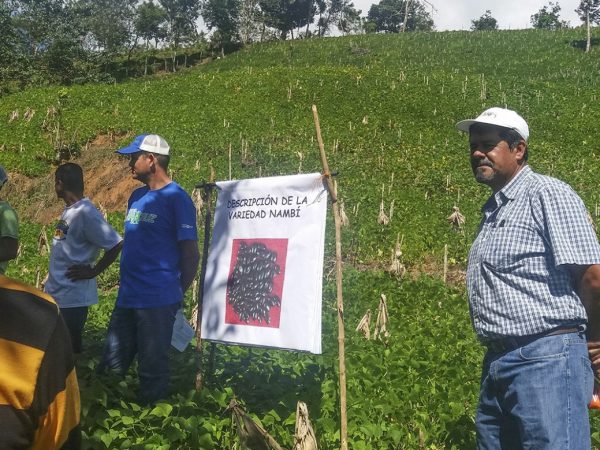
If you ask for Jose Angel Torres Diaz in Nambi, probably no one would know who he is, but if you ask where a certain Chango Cabuya lives, they locate him quickly.
In a ranchita, or little ranch, as he calls his home, which is almost collapsing under the shade of a mango and an orange tree, on one side of the main road in Nambi, lives one of those unique characters who remains frozen in time in our province.
Many consider him an old hermit, cantankerous and half bewildered with his wisecracks. However, during his 67 years of life, his hands have known hard work in the field, especially in agriculture, and he has experienced firsthand what it is to go without in daily life.
With a white beard like cabuya— agave fiber extracted from the Maguey plant to make rope— Torres lives a quiet and solitary life.
He wears an old hat, worn out sandals, a half-torn blue sleeveless T-shirt and faded shorts. What many do not know is that behind this unremarkable exterior beats the heart of a poet who composes and recites from memory verses that range from the most romantic and poignant to the most humorous and implausible.
Fond of talking, Jose Angel tells me that one of his eight brothers gave him the nickname Chango because as a kid, he could not say his full name well so instead of complicating the matter, he just called him Chango.
And he was nicknamed Cabuya due to working so long with the Maguey, extracting fiber and making ropes for different uses.
However, he says that if someone he doesn’t know calls him Chango Cabuya, it bothers him and he retorts, “La Tuya” (Literally: Yours. Like saying “back at you”).
Suspicious of our being there, Cabuya speaks to us with his machete in hand the whole time we interview him since he still doesn’t believe his story is going to come out published in the newspaper. In addition, he tells me that in the past, some people have scammed him and taken advantage of his trust to steal from him.
Nonetheless, after assuring him of our intentions, he relaxes a little more and even shows us in and around his home.
Cabuya From Within
Inside his home, space is limited and the light is dim. He has half a dozen bicycles stored there, which were collateral from some neighbors who didn’t have money to buy coyol wine and left them in hock.
At night, it is completely dark and is lit only by the fire of the wood stove.
He doesn’t have television, just an old battery-powered radio which he tunes in every morning to listen to rancheras on Radio Sinfonola y Rocola— his favorite program.
Used to living alone, he wakes up early in the morning to make his oatmeal with pinol (traditional beverage made from roasted corn flour and cocoa) along with a tortilla or curd cheese. He doesn’t drink coffee and avoids fits of anger because they aren’t good for him since he has epileptic seizures.
Because of this, he has to take three medications every day, which he buys with a modest pension that he gets from Social Security. He also sells long brooms to dust the ceilings of houses.

He enjoys reading and treasures a copy of a book of poems by Innocent Gutierrez, from Santa Cruz, along with the Bible and the book The Truth That Leads to Everlasting Life. He also has a booklet on natural medicine and healing with plants and fruits that he uses when his health is bad.
Reciting poems is one of his pastimes. One of his favorites is by Mexican singer and writer Gerardo Reyes, titled Verdades Amargas (Bitter Truths), which talks about the sorrows and disappointments of life.
Another of his poems is the fable of the numbers and how the number one and the number two went on a trip to the city of zeros and both had different outcomes to their adventures.
For example, on his journey, the number one made many friends and grew in popularity and quantity, while the number two stayed the same due to pride (see poem at the end).
“No relative comes here,” he tells me. And he assures me that he remained a bachelor, with no children that he knows of, and the love interests that he has had have left him for other men with more money.
He doesn’t like to think about death but tells me he isn’t afraid of it either. “Why should I think about death? You have to think about life,” he smiles.
|
The Fable of the Numbers In the city of zeros one and two entered and, of course, they tried to prosper and make money. Soon one harvested, since he honored the zeros with very close friendship and giving them the right his value thus went increasing. But two is from another string, Everything is cursed pride! And with such slow-witted tactics he put the zeros on the left and thus he didn’t prosper one bit. In summary, the humble one became a millionaire while two, importunate, due to his pride, that nothing, didn’t go beyond being dissolute. He who is humble shines more, and whoever exalts himself is humbled even in Arithmetics. |







Comments